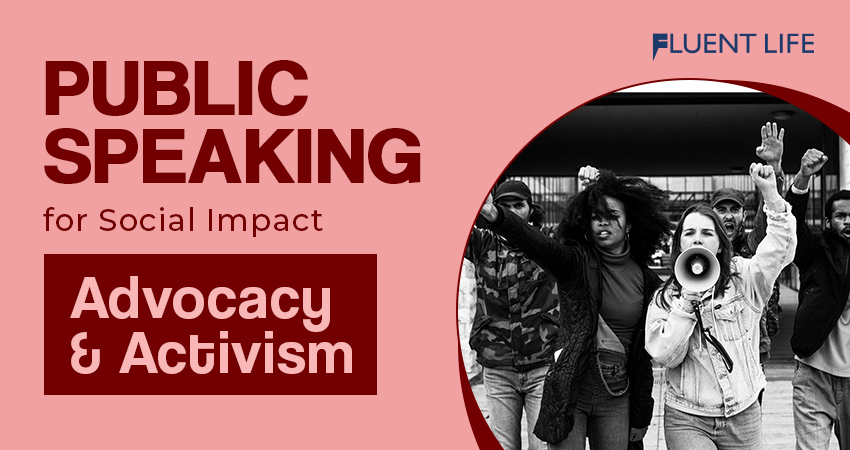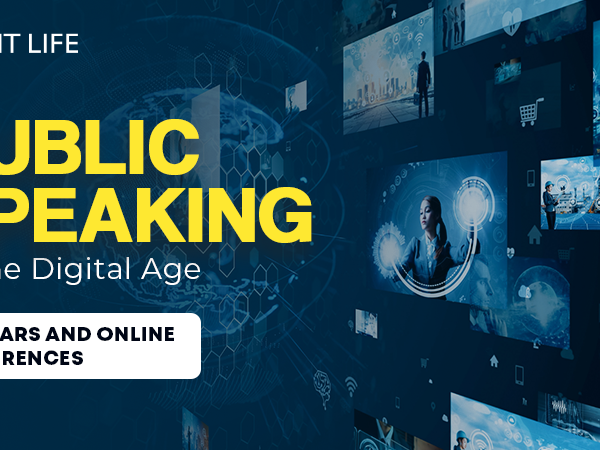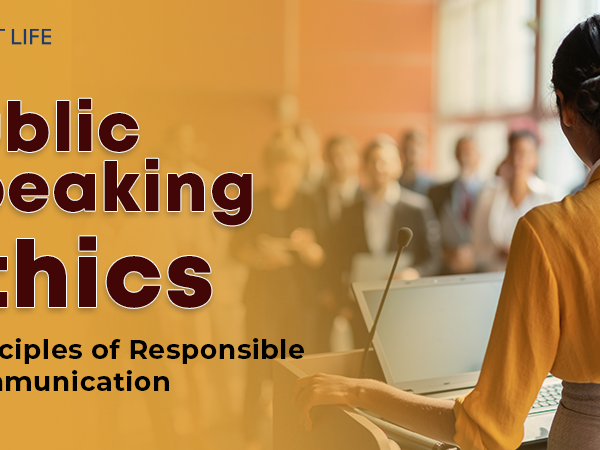Public speaking can be a strong tool to make a social impact. It is an opportunity to share light on important matters and move people to action. To be a successful public speaker, it is important to connect with the audience emotionally. Telling stories and sharing personal experiences can make topics relatable to more people. This can create empathy, open dialogue, and create inclusivity.
To use public speaking for social good, there are a few things to keep in mind.
- Researching thoroughly builds credibility and provides accurate info to the audience.
- Secondly, perfecting communication techniques such as body language, vocal variation, and eye contact adds to the persuasive delivery.
- Lastly, involving the audience in interactive sessions or Q&A can give them a sense of ownership.
Public Speaking for Social Impact
Public speaking for social change is a powerful tool. It enables individuals to advocate for causes and urge others to act. Let’s look at five aspects to understand it better:
- Empathy: Successful public speakers reach their audience on an emotional level. They use empathy to communicate their message in a relatable way.
- Storytelling: Tales have the power to captivate and motivate people. Speakers who can effectively include stories in their speeches make a lasting impact.
- Authenticity: Be true to yourself when discussing social issues. Audiences appreciate speakers who are passionate about what they are advocating for.
- Research and Knowledge: To speak confidently, research the topic thoroughly. Get information and statistics to establish credibility and emphasize the cause.
- Call-to-Action: A call-to-action is key to encouraging listeners to get involved after the speech. Suggesting activities such as signing petitions or volunteering extends the speech’s impact.
Public speaking is a skill that can be improved with practice, feedback, and learning. Don’t underestimate its potential to create social change. You can shape opinions, defy norms, and motivate collective action towards a better future. So take the opportunity! Step out of your comfort zone and use public speaking to make a difference – together, we can do it!
Also Read: Setting SMART Goals for Personal Growth: A Step-by-Step Guide
Effective Techniques – Public Speaking for Social Impact
Public speaking is a powerful way to make social change through activism and advocacy. To engage with your audience and get your message across, there are some techniques you can use:
- Research your topic thoroughly and get all the facts. This will help you give strong arguments and show you are credible.
- Create a good story. Storytelling fascinates people, stirs emotions, and makes your message unforgettable.
- Use persuasive language and rhetoric. Use techniques such as ethos, pathos, and logos to persuade people with logic, emotion, and ethics.
- Good body language is a must. Stand tall, use hand gestures with purpose, make eye contact, and speak loud.
- Add visuals or audio clips that support your argument or emphasize main points.
- Be ready for challenges. Remain assertive and calm while responding to opposition.
To be an even better public speaker for social change:
– Practice regularly in front of a mirror or with trusted peers who can give you helpful feedback.
Public speaking can make a huge difference. Use these techniques to make your speeches meaningful and motivate people to take action.
Also Read: Top 100 Commonly Used A to Z Phrasal Verbs for English Fluency
Engaging the Audience and Creating Social Impact
Public speaking can make a big social impact if done right. Strategies and techniques that capture and motivate the audience are key. Here are a few:
- Tell stories to emotionally engage the audience.
- Use visuals to strengthen key messages.
- Involve the audience in discussions and activities to promote thinking.
- Use persuasive language and evidence to foster support.
- Create an atmosphere of respect for diverse perspectives.
In addition, to maximize social impact, speakers must be passionate, confident and use gestures and vocal variation to keep the audience’s attention. Social media can also extend the reach of advocacy.
Malala Yousafzai is a great example of public speaking making a difference. Her Nobel Peace Prize acceptance speech highlighted the importance of education for girls and motivated millions to fight gender discrimination and demand educational equality. Her speech sparked a movement that still works for positive change.
Bottom line, public speaking can make a big impact if it includes strategies from storytelling to active participation. Speakers can inspire action, break societal norms, and bring about positive change.
Also Read: Find Your Passion: A Path to Self-Discovery and Fulfillment
Conclusion
Public speaking for social impact is a great way to advocate and campaign. It can be used to inspire change, raise awareness, and bring communities together. It’s important to use this tool to address social issues and achieve progress.
- Engaging an audience is key. Speakers should use stories, examples, and emotional appeals to captivate listeners. Empathy helps people understand the struggles of marginalized communities and encourages them to take action.
- Also, persuasive language, visuals, and rhetorical devices help speeches become successful. This makes ideas concise and memorable. Listeners’ concerns should be taken seriously and solutions should be clear and appropriate.
- Collaborating with grassroots organizations, influencers, and policymakers is beneficial. It allows speakers to use diverse perspectives and resources. This creates stronger movements and drives social change. Public speaking also gives networking opportunities to meet like-minded people.
Pro Tip: Practice before delivering a speech. Rehearse in front of a mirror or record yourself for improvement. Effective body language, vocal variety, and eye contact are important. Know More – The Fluent Life
Frequently Asked Questions
Q1: What is public speaking for social impact?
A: Public speaking for social impact refers to using public speaking skills to advocate for and create positive change in society. It involves effectively delivering speeches and presentations to inspire, inform, and engage individuals or communities for the purpose of advancing social causes and promoting activism.
Q2: How can public speaking contribute to social activism?
A: Public speaking plays a crucial role in social activism as it allows activists and advocates to effectively communicate their messages, raise awareness about important issues, mobilize support, and influence public opinion. It provides a platform to articulate ideas, share personal experiences, and inspire action, helping drive social change.
Q3: What are the key elements of impactful public speaking for advocacy?
A: Some key elements of impactful public speaking for advocacy include clearly articulating the issue or cause, connecting with the audience on an emotional level, providing compelling evidence or stories, offering actionable solutions, using persuasive and inclusive language, and delivering the speech with confidence, authenticity, and passion.
Q4: How can I improve my public speaking skills for social impact?
A: To improve public speaking skills for social impact, you can practice regularly by delivering speeches or presentations, join a public speaking club or organization to receive feedback and guidance, study and learn from master speakers, utilize effective storytelling techniques, work on enhancing body language and vocal delivery, and engage in constructive self-reflection and self-improvement.
Q5: How can I overcome the fear of public speaking for advocacy?
A: Overcoming the fear of public speaking for advocacy requires gradual exposure and practice. Start by speaking in front of smaller, supportive audiences and gradually increase the size and diversity of your audience. Prepare thoroughly, visualize success, and focus on the message rather than the fear. Breathing exercises, positive self-talk, and seeking support from mentors or public speaking coaches can also be helpful.
Q6: Where can I find resources to learn more about public speaking for social impact?
A: There are numerous resources available to enhance your knowledge and skills in public speaking for social impact. You can explore books, online courses, TED talks, webinars, workshops, and seminars on public speaking and advocacy. Additionally, joining relevant social or activist groups, attending conferences, and networking with experienced speakers can provide valuable insights and learning opportunities.






